Protecting the Amazon forest with Kichwa farmers
Protecting the rainforest while improving farmers' quality of life thanks to agroforestry.
Growing the forest back
The population grows fast in the area and farmers living by the edge of the forest are getting short on land, finding it harder to sustain their needs. As they end up cutting trees to gain extra land, the forest is slowly receding.
Is the Amazon rainforest condemned to lose acres of trees every year? Not if we learn how to make a living out of it, sustainably, and to plant new trees. That's where we join Ishpingo, an organization that's already active there, to help put in place new ecological and sustainable habits consisting in reforesting, developing agroforestry and transmitting valuable know-how to allow for the forest and the crops to live in harmony.
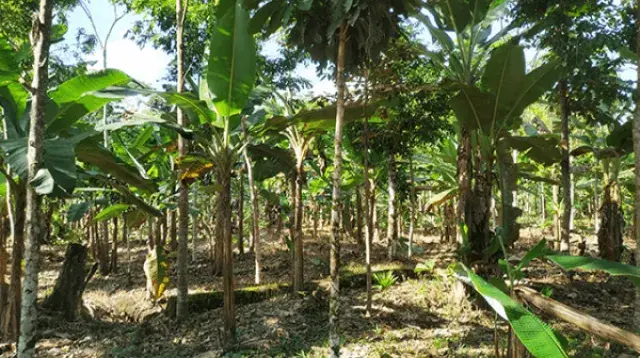
15 000 new trees
For the change to be successful and contribute to improve their living conditions, the Kichwa farmers need to access new equipment and methods.
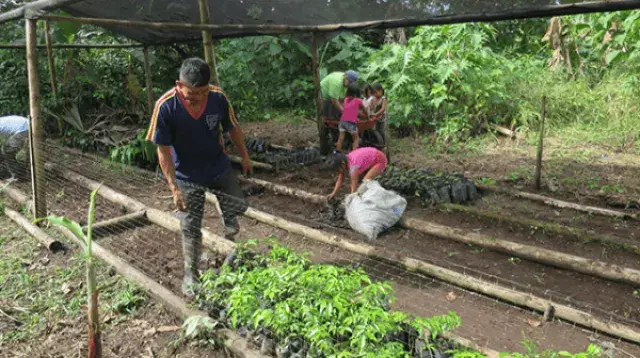
Therefore, the plan is to create communal plant nurseries (6 for this new program) and share good practices with the volunteering families.
In turn, they will be able to transmit them to their children, so as the trees that will have grown well in a few years.
Agroforestry, as a source of revenues
By combining various varieties of trees, there is no need to eradicate the current crops. It becomes possible to reforest plots that are already being cultivated or to plant trees on their edges. Food producing crops, fruit trees and timber can fully cohabit.
Following the principles of agroforestry makes it possible to benefit from these new trees, in the short run and in the long run, without harming ecosystems. The more varieties there will be, the better the natural resistance against diseases. Such local sustainable cultivation practices make room for trees so they have a place on the economical and social life of the local families through medicine, handcrafting, food, furniture and house building...
Preserving endangered local trees
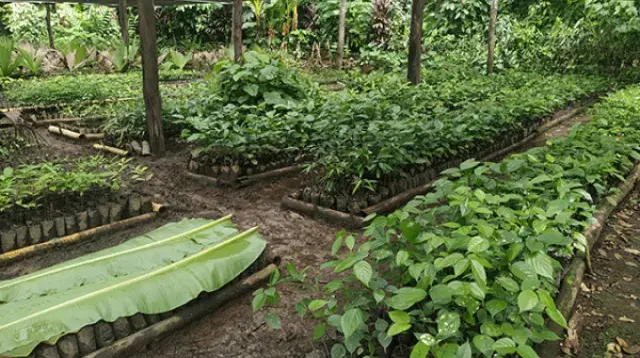
We plant at least 15 different varieties in each orchard to favour biodiversity, prioritizing endangered trees in order to restore their populations:
- big-leaf mahogany (Swietenia macrophylla),
- cedrorana or tornillo (Cedreling cateniformis),
- guayacán (Tabebuia sp.),
- pinga (Aspidosperma sp.)
- cedro (Cedrela odorata)
- mindal (Simira standleyi)
Many fruit-bearing species are associated with them, including: cherimoya, guayabilla, mandarin, cocoa…
Beforehand, Ishpingo runs in-depth research in the forest or at the nearby farms to identify the remaining mother-trees* in endangered species. By offering their owners to sell their seed production for the communal nurseries instead of cutting them, the program also protects these precious trees.
*trees capable of providing seeds
Nothing but good for the Earth
Planting all these trees back also helps limit erosion, save water, preserve rare species and capture carbon, among many other positive benefits: it is a virtuous circle.
Together with local communities
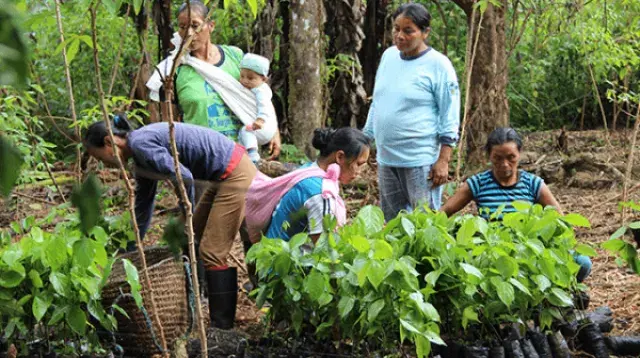
75 kichwa families
Klorane Botanical Foundation helps 75 families reforest their land and draw food and revenues from it. They receive both collective and individual training to run the nurseries and plant trees, as well as to manage their production and fruit plots.
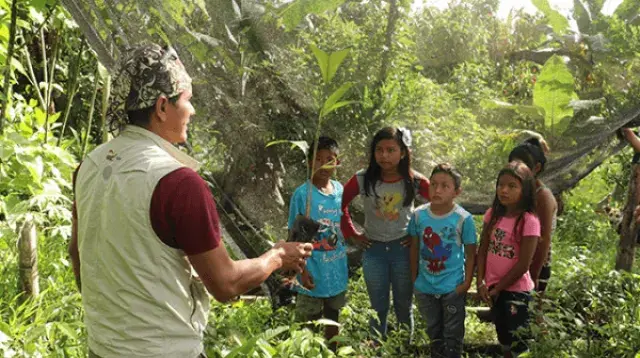
School teaching
Acting for today is a great thing, acting for tomorrow is even better. The aim is to help young generations access these sustainable practices too. Together with Ishpingo we will be active in that regard too, by doing the following:
- raising awareness around sustainable development among 100 kids in 3 schools,
- creating a nursery and an arboretum of at least 100 fruit-bearing seedlings and timber at these schools,
- helping each one of them plant a small orchard at their farm.
Farmers are on board
The actions run by Ishpingo for several years now encounter great success. So much success that some farmers are now looking at ways to enlarge their crops using these new methods.
Although these sustainable practices go against the traditional habits of slash-and-burn, much more harmful to the environment, they are more and more welcomed and gaining traction there!
Partners on the subject
